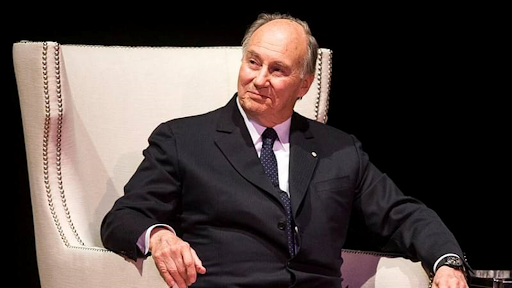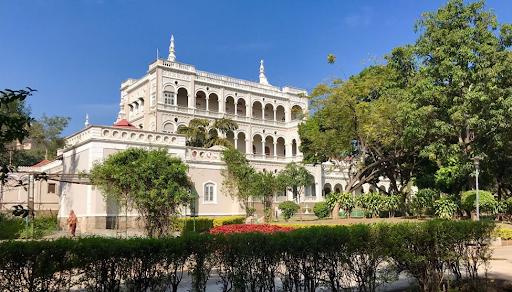"The Aga Khan: The Billionaire Spiritual Leader Who Transformed Lives and Left a Legacy of Hope"
The
Aga Khan: A Legacy of Faith, Philanthropy, and Global Impact
The world
recently lost one of its most influential spiritual leaders and
philanthropists, Prince Karim Aga Khan IV, who passed away peacefully at the
age of 88 in Lisbon, Portugal. As the 49th hereditary Imam of the Ismaili
Muslims, the Aga Khan was not just a spiritual guide to millions but also a
visionary humanitarian whose work transcended borders, religions, and cultures.
His life was a beautiful blend of faith, generosity, and an unwavering
commitment to improving the lives of the marginalized. Let’s dive into the
remarkable journey of a man who left an indelible mark on the world.
A
Spiritual Leader with a Global Vision
Born in
Switzerland in 1936, Prince Karim Aga Khan inherited the title of Imam at the
young age of 20, following the passing of his grandfather, Sultan Mahomed Shah
Aga Khan III. The Ismaili Muslims, a Shia Muslim community with approximately
15 million followers worldwide, regard the Aga Khan as their spiritual leader
and a direct descendant of Prophet Muhammad. But his leadership wasn’t just
about spiritual guidance; he was a bridge between cultures, promoting peace,
tolerance, and pluralism in a world often divided by conflict.
The Aga Khan’s
vision was rooted in the belief that faith and action must go hand in hand. He
once said, “The work
of the Imamat is to improve the quality of life of the community and the
societies in which they live.” This philosophy became the cornerstone
of his life’s work, inspiring countless initiatives aimed at uplifting
communities across the globe.
A Glimmer of Hope: The Aga Khan Development Network
One of the Aga
Khan’s most enduring legacies is the Aga Khan Development Network (AKDN), a
sprawling network of agencies dedicated to improving the quality of life for
people in some of the world’s most impoverished regions. Established in 1967,
the AKDN operates in over 30 countries, focusing on areas such as healthcare,
education, cultural preservation, and economic development.
·
Healthcare: The AKDN runs hundreds of hospitals and clinics, providing
millions with access to quality healthcare. From rural villages in Africa to
urban centers in Asia, the network has been a lifeline for those in need.
·
Education: The Aga Khan believed that education was the key to
unlocking human potential. His foundation established schools, universities,
and scholarship programs, including the prestigious Aga Khan University in
Karachi and the Aga Khan Program for Islamic Architecture at Harvard and MIT.
·
Cultural Preservation: The Aga Khan Trust for Culture
played a pivotal role in restoring historic sites like Humayun’s Tomb in Delhi,
blending heritage conservation with community development.
·
Economic Empowerment: Through microfinance and
entrepreneurship programs, the AKDN has empowered countless individuals,
particularly women, to achieve financial independence.
The Aga Khan’s
approach to development was holistic, addressing not just immediate needs but also
fostering long-term sustainability. His work earned him global recognition,
including numerous awards and accolades from governments and international
organizations.
A
Life of Contrasts: Philanthropy and Lavish Living
While the Aga
Khan was deeply committed to humanitarian causes, he also led a life of
opulence that often made headlines. He owned a private island in the Bahamas, a
fleet of luxury vehicles, a super-yacht, and a private jet. His passion for
horse breeding and racing further added to his glamorous image. The Aga Khan
was one of the most successful racehorse owners in history, with five Derby
wins to his name, including the legendary Shergar.
Shergar’s
story, however, is tinged with tragedy. After winning the 1981 Epsom Derby by a
record-breaking 10 lengths, Shergar was kidnapped in 1983 by an armed gang
believed to be linked to the IRA. The horse was never found, and the incident
remains one of the most infamous mysteries in the world of horse racing.
Despite this loss, the Aga Khan’s love for the sport never waned, and he
continued to breed champions like Zarkava, who won the Prix de l’Arc de
Triomphe in 2008.
A
Friend to Royals and a Global Icon
The Aga Khan’s
influence extended beyond the realms of spirituality and philanthropy. He was a
close friend of the British royal family, particularly the late Queen Elizabeth
II and King Charles III. His passing has been met with profound sadness by
leaders and dignitaries worldwide. Pakistan’s Prime Minister Shehbaz Sharif
described him as a “man
of vision, faith, and generosity,” while UN Secretary-General
Antonio Guterres hailed him as a “symbol
of peace, tolerance, and compassion.”
The
Aga Khan’s Enduring Legacy
The Aga Khan’s
life was a testament to the power of faith, compassion, and action. His legacy
is not just in the institutions he built or the races he won but in the
millions of lives he touched. From the deserts of Africa to the mountains of
Central Asia, his work continues to inspire hope and transformation.
As the Ismaili
community and the world mourn his passing, the Aga Khan’s vision lives on
through his successor, who will soon be named from among his male descendants.
The AKDN remains committed to its mission, ensuring that his dream of a better
world becomes a reality.
Final
Thoughts: A Call to Action
The Aga Khan’s
life reminds us that true leadership is about service and sacrifice. His story
challenges us to look beyond our differences and work together for the common
good. Whether through supporting education, championing healthcare, or
preserving cultural heritage, we can all play a part in continuing his legacy.
By blending
spirituality, philanthropy, and a passion for excellence, the Aga Khan carved a
path that few can follow but many can admire. His legacy is a beacon of hope,
urging us to strive for a better tomorrow.
To stay informed, please like, share, and subscribe for more.



